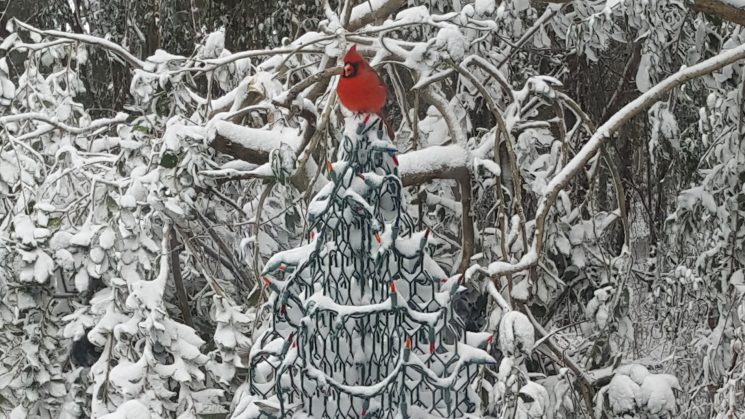
Welcome to the newest online issue of Scotch Bonnet. This marine education newsletter also is available as a PDF, if you’re like me and want to keep a hard copy.
I hope that you all have gotten through the winter weather without losing your upcoming spring break days. Here on the Outer Banks, we had a 5-inch snow, followed by a 10-inch snow two weeks later — crazy-unusual for our area!
It was certainly beautiful, and many enjoyed making snow angels and sledding. But others were suffering from cabin fever after a couple cold, frozen days. Spring is just around the corner. I must keep mumbling that fact, because when I glanced out my window a few minutes ago, it was snowing here again.
Thanks to Pat Curley, Lauren Daniel, Melissa Dowland, Ashley Hamlet, Gail Lemiec, Dottie Shuman and Leslie Smith for their contributions to this issue. Wishing you all a wonderful winter season!
As you explore this new issue of Scotch Bonnet, you will notice professional development opportunities and family adventures for everyone. Take advantage of these wonderful conferences, workshops and more, especially if you’re working on your environmental education certification. Keep reading for unique opportunities and ideas for educators. There is a lot going on in North Carolina and beyond!
sites.google.com/site/blueheronbowl
The 2018 Blue Heron Bowl will be held in Wilmington on Saturday, Feb. 17. Hosts include the University of North Carolina Wilmington, the Center for Marine Science and the Watson School of Education.
The Blue Heron Bowl is a regional marine science quiz bowl. Two teams, each composed of four students and one alternate, square off against each other to answer questions related to marine science. Many of these students are coached by a marine science teacher or a general science teacher who sponsors their training. Each match consists of six minutes of toss-up and bonus questions, followed by two team challenge questions, and ends with a final six minutes of toss-up and bonus questions.
North Carolina Sea Grant is proud to be a long-time supporter of the Blue Heron Bowl.
Winners of the Blue Heron Bowl will go on to the national competition, which takes place April 19 to 22, in Boulder, Colorado. The Blue Heron Bowl championship team will compete against 25 other regional teams over two days.
Congratulations to the North Carolina School of Science and Math for coming in third overall at the 2017 National Ocean Science Bowl in Corvallis, Oregon.
What: SCUTES Educator Workshop
When: Saturday, Feb. 17; 9:00 a.m. to 3:00 p.m.
Where: N.C. Aquarium at Fort Fisher, 900
Loggerhead Road, Kure Beach
Cost: Free, but registration is required
RSVP: Call 910-772-0500
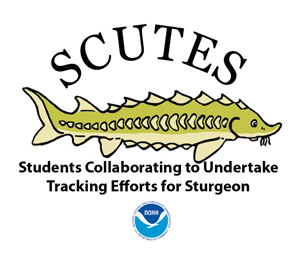 Atlantic and shortnose sturgeon are two sturgeon species that can be found in coastal waters, estuaries and major rivers along the East Coast of the United States. Because of overfishing for sturgeon eggs — which were processed into caviar — shortnose and Atlantic sturgeon have been listed as endangered throughout their range under the Endangered Species Act (ESA).
Atlantic and shortnose sturgeon are two sturgeon species that can be found in coastal waters, estuaries and major rivers along the East Coast of the United States. Because of overfishing for sturgeon eggs — which were processed into caviar — shortnose and Atlantic sturgeon have been listed as endangered throughout their range under the Endangered Species Act (ESA).
The SCUTES (Students Collaborating to Undertake Tracking Efforts for Sturgeon) program is a collaboration among NOAA Fisheries (NMFS), sturgeon researchers, teachers and informal educators to bring more awareness about sturgeon and the ESA to the classroom. NMFS has worked with educators to develop lesson plans and activities relating to sturgeon. These lesson plans meet the National Education Standards, and cover a variety of subjects, including Language Arts, Science, Social Studies and Math.
Teachers are invited to borrow SCUTES kits from NMFS and SCUTES partners that contain lesson plans and activity supplies. NMFS staff members also are available for school visits to showcase the kits, as well as sturgeon specimens.
The goal of this workshop is to introduce educators to SCUTES lesson plans relating to the ESA and to sturgeon. These lessons can be used in Language Arts, Social Studies, Math and Science middle school and high school classrooms, but may be adapted for younger ages. Educators will work through lesson plans in groups and participate in the activities, and are welcome to provide any constructive feedback.
For registration, call 910-772-0500.
What: Flying WILD: Waterfowl
When: Thursday, Feb. 22; 9:00 a.m. to 12:00 p.m.
Where: Sylvan Heights Bird Park, 500 Sylvan Heights Park Way, Scotland Neck
Cost: Free, but registration is required
RSVP: Please contact Ashley Hamlet at education@shwpark.com
An advanced Project WILD workshop, Flying WILD, offers a whole-school approach to environmental education, using birds as the focus. Discover more in-depth content about waterfowl through activities involving language arts, social science and math experiences, coupled with community outreach and service learning applications.
Targeted for the middle-school audience, though widely adaptable, Flying WILD offers practical hands-on classroom and outdoor field investigation activities that relate to real-world experiences in bird biology, conservation and natural history.
Minimum number of participants is 10; this workshop is eligible for 3 hours of Criteria II/ CEU credit.
What: Field Sketching Workshop
When: Saturday, May 12; 11:00 a.m. to 1:00 p.m.
Where: Sylvan Heights Bird Park, 500 Sylvan Heights Park Way, Scotland Neck
Cost: $40 for Sylvan Height members; $45 for non-members; registration is required
RSVP: Please contact Ashley Hamlet at education@shwpark.com
As we celebrate International Migratory Bird Day, join North Carolina artist E. M. Corsa to discover birds in a whole new way through field sketching! This workshop will highlight simple tips to help you when working from nature, whether you’re focusing on birds or any other subject, and will benefit both beginners and advanced artists alike.
Explore the diversity of birds from around the world as you learn to draw live birds, feathers, and eggs at Sylvan Heights Bird Park. You will never look at a bird in the same way again!
This workshop is for participants ages 16 and up. A class supply list will be emailed to participants after registration. Registration for this event will open soon! Check out our website for more details: shwpark.com.
Maximum number of participants is 12. This workshop is eligible for 2 hours of Criteria III/ CEU credit.
https://sites.google.com/a/ncsu.edu/nc-youth-ocean-conservation-summit/
For the past three years, the North Carolina Youth Ocean Conservation Summit (NC YOCS) has provided a meeting place for young conservationists to work together on timely topics in ocean conservation. Students ages 11 to 18 from across the state listen to and speak with scientists about problems affecting local and global waterways.
Students then break into groups to identify a problem and brainstorm ideas to resolve it. Based on those discussions, they develop conservation projects, and find funding to support them. Projects can cover topics in marine debris prevention/awareness, habitat restoration and wildlife conservation.
This year’s event features Linda Booker, filmmaker behind the documentary STRAWS, as the keynote speaker. Since its release in 2017, the award-winning film — which charts efforts to reduce plastic straw waste — has screened at film festivals, aquariums and events around the world, including the United Nations Environmental Assembly in Nairobi, Kenya. In the short film, Linda interviews marine researchers, artists, citizen activists and business owners in California, Costa Rica and North Carolina. They share how it’s possible to make a sea change, one straw at a time.
Students also will participate in skill-building workshops that cover topics such as grant writing, oyster habitat restoration and artistic expression that communicates a cause.
The 2018 North Carolina Youth Ocean Conservation Summit is set for Saturday, Feb. 24, from 9:00 a.m. to 4:00 p.m., at the Duke University Marine Lab. Registration for this event is currently closed.
http://www.eenorthcarolina.org/certification–requirements.html
What: Methods of Teaching Environmental Education
When: Monday, Feb. 26; 1:00 to 5:00 p.m.
Tuesday, Feb. 27; 9:00 a.m. to 4:00 p.m.
Where: UNC Coastal Studies Institute, 850 Highway 345, Wanchese
Cost: Free, but registration is required
RSVP: Please contact Terri Kirby Hathaway at terrikh@csi.northcarolina.edu
MOTEE is a Criteria I workshop, required for N.C. Environmental Education Certification. This 10-hour workshop prepares participants from a range of educational backgrounds and experiences, in formal and informal education sectors, to use exemplary environmental education teaching methods. Participants will learn about a variety of teaching techniques, methods and instructional strategies. The workshop will include multiple interactive components to illustrate these concepts.
Participants must have completed Basics of Environmental Education, a prerequisite for this workshop.
The workshop facilitator is Terri Kirby Hathaway of North Carolina Sea Grant. This workshop is part of the National Association for Interpretation (NAI) regional conference, which takes place Feb. 28 to March 3 — but you do not have to be registered for NAI in order to take this training!
To register for MOTEE, please contact Terri at terrikh@csi.northcarolina.edu, or 252-475-5486.
teensciencecafe.org/cafes/teen-coastal-marine-science-cafe/
What: Coastal Teen Science Café
When: First Thursday each month; 6:00 to 7:00 p.m.
Where: NC State University’s CMAST, 303 College Circle, Morehead City
Cost: Free, but registration is required
RSVP: thesciencehouse.wufoo.com/forms/coastal-teen-science-cafe/
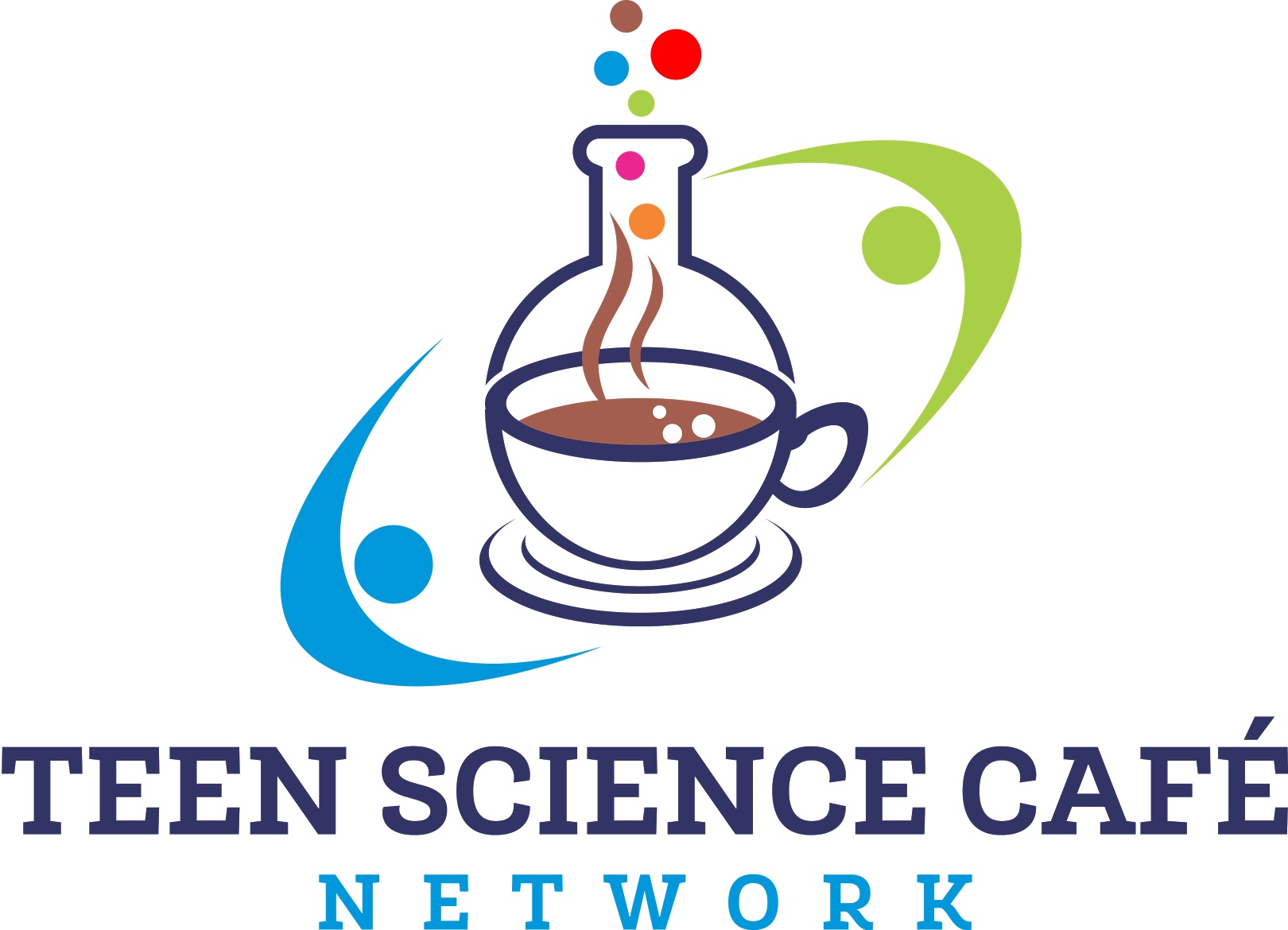 Teen Science Cafés are youth-led afterschool programs sweeping across the nation. They introduce students to careers in science, technology, engineering and mathematics (STEM) through engaging presentations and hands-on activities, all in a relaxed environment. Cafés offer students opportunities to speak with scientists about the latest scientific research and local STEM careers. Because the Coastal Teen Science Café takes place within a 5-mile radius of other marine science facilities, this local Café focuses on STEM careers in the field of marine science.
Teen Science Cafés are youth-led afterschool programs sweeping across the nation. They introduce students to careers in science, technology, engineering and mathematics (STEM) through engaging presentations and hands-on activities, all in a relaxed environment. Cafés offer students opportunities to speak with scientists about the latest scientific research and local STEM careers. Because the Coastal Teen Science Café takes place within a 5-mile radius of other marine science facilities, this local Café focuses on STEM careers in the field of marine science.
On the first Thursday of every month, from 6:00 to 7:00 p.m., NC State University’s Center for Marine Sciences and Technology (CMAST) hosts a local marine scientist for the Coastal Teen Science Café. The local Café is open to students ages 13 to 18 and is free to attendees. Thanks to sponsorship from the Morehead City Pizza Hut, the Coastal Teen Science Café serves free pizza to participants. Students interested in attending this Café must register beforehand so enough pizza can be supplied.
Upcoming speakers include:
• March 1: Cynthia Crane – Director, Aurora Fossil Museum
• April 5: Rachel Canty – Graduate student, UNC-Chapel Hill Institute for Marine Sciences
• May 3: Olivia Caretti – Graduate student, NC State CMAST
www.eenorthcarolina.org/certification–requirements.html

All workshops will be held from 6:00 to 9:00 p.m. on the Montreat College Campus in the basement of the gym, near Lake Susan in the town of Montreat.
Please contact Dottie Shuman at dshuman@montreat.edu if you are interested in attending any or all of these workshops.
Now’s your chance to learn more about Project WET (Water Education for Teachers) and/or become a WET facilitator! Join other educators at Morrow Mountain State Park to learn about educational activities that you can provide in your own outreach programs.
NC Environmental Education Criteria I Credit available.
Overnight accommodations are available for a small fee. For more information, contact Lauren Daniel at lauren.daniel@ncdenr.gov. To register, go to surveymonkey.com/r/K8C8NR3
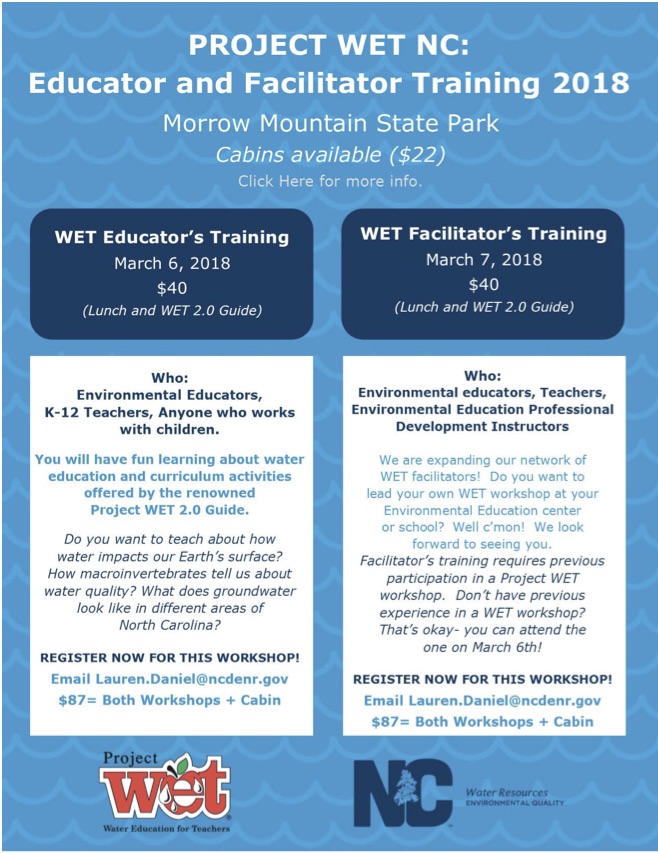
What: Sea Turtle Exploration Workshop
When: Saturday, April 7; 9:00 a.m. to 3:30 p.m.
Where: N.C. Aquarium at Fort Fisher, 900 Loggerhead Road, Kure Beach
Cost: $25 (includes admission, behind the scenes tour, access to the curriculum)
RSVP: reservations.ncaquariums.com/fortfisher/Info.aspx?EventID=20
The N.C. Aquarium at Fort Fisher is offering a workshop featuring its Sea Turtle Exploration, a curriculum to help educators engage students in the fundamentals of STEAM through ready-to-use, standards-based lesson plans centered on sea turtles. Join them on Saturday, April 7, for a hands-on teacher workshop that will guide you through the new curriculum and website.
Participants will learn about additional resources, such as weekly blog posts during the school year. Topics will include species profiles, aquarium staff spotlights, behind-the-scenes videos, new lesson plans and more. Follow the growth of aquarium hatchling sea turtles by visiting the blog each week.
Your class will be able to “adopt” a turtle and learn about its care and growth — an activity aligned with the Common Core standards. Once you adopt your turtle, you will receive weekly updates with information, including the turtle’s current weight and length. Each class will receive a certificate of participation as well.
By the end of the workshop, you will be familiar with the website and curriculum and how to implement the lessons in your own classroom. The workshop will include a behind-the-scenes tour to meet one of the Aquarium’s sea turtles.
Please bring a reusable water bottle and, if you choose, a lunch, preferably waste-free. Our snack shop will NOT be open, but there are lunch options off-site.
This workshop will count toward N.C. Environmental Education Certification (Criteria I) and consists of 6 contact hours that may count toward CEUs for teachers.
marinetech.org/rov-competition/
What: Mid-Atlantic MATE ROV Competition
Where: Old Dominion University Recreation & Wellness Center, Norfolk, Virginia
When: Saturday, April 21
Cost: Registration for ROV competition is $25 per Scout team, $75 per Navigator
Team and $200 per Ranger team
Inquiries: Susie Hill, regional coordinator, 757-664-1041;
RSVP: midatlantic.marinetech2.org/registration
What: Coastal Carolina MATE ROV Competition
Where: Camp Albemarle/The Sports Center, Morehead City
When: Saturday, May 19
Cost: Registration for ROV competition is $25 per Scout team and $75 per Navigator team
Inquiries: Pat Curley, pwcurley@ncsu.edu
RSVP: coastalcarolina.marinetech2.org
The Marine Advanced Technology Education (MATE) Center uses underwater robots — also known as remotely operated vehicles, or ROVs — to teach science, technology, engineering and math (STEM) and to prepare students for technical careers. Working in partnership with the Marine Technology Society ROV Committee, MATE created the ROV competition as a way to:
• Engage students in STEM and expose them to science and technology careers
• Encourage students to develop and apply technical, teamwork and problem-solving skills
• Provide funds, materials and technical expertise to support student learning
• Provide industry with skilled individuals who can fill workforce needs
The MATE competition challenges K-12, community college and university students from all over the world to design and build ROVs to tackle missions modeled after real-world scenarios. The competition’s class structure — which includes beginner, intermediate and advanced levels — provides students with the opportunity to improve their skills, and how they apply them, as they engineer increasingly complex ROVs for increasingly complex mission tasks.
For 2018, there are two MATE ROV competitions available to North Carolina students: the Mid-Atlantic competition in Norfolk, Virginia, and the Coastal Carolina competition in Morehead City.
“Drawers, Jars and Databases: Teaching the Hidden Science of Natural History Museums” will be offered July 9 to 11.
Curious about collections research? Join the North Carolina Museum of Natural Sciences, iDigBio (Integrated Digitized Biocollections) and the MicroFungi project on a field trip to Prairie Ridge Ecostation and the museum’s research lab. Then explore the research collections at the museum and NC State University, and participate in hands-on activities that use collections, digitization, and collections data to develop new ways to incorporate collections-based educational resources into your classroom!
Fee: Free. Breakfast and lunch will be provided all three days, and participants traveling 50 miles or more from home are eligible for lodging, mileage and a stipend to cover meals that are not provided.
Requirements: For educators. This workshop is designed for high school biology and earth/environmental science teachers, but other educators who would like to adapt content are welcome to apply.
Credit: 24 contact hours toward CEUs or Criteria II/III for North Carolina’s Environmental Education Certification Program.
Application: This workshop is being offered in collaboration with iDigBio. Please visit iDigBio’s website for an application at idigbio.org/content/drawers-jars-and-databases-teaching-hidden-science-natural-history-museums.
Applications due March 12, 2018!
Looking for other opportunities? For information about additional teacher education programs, contact Melissa Dowland at 919-707-9898.
Join Dr. Beachcomb for another amazing beachcombing experience at the 9th annual International Beachcombing Conference, 2018 (IBC), coming to North Carolina’s beautiful Crystal Coast March 21 to 25.
IBC is a collegial, educationally focused gathering, offering experienced and beginning beachcombers alike opportunities to learn more about the beachcomb experience, beach treasures, coastal conservation issues, and the region in which the conference takes place.
Learning opportunities include field trips to different beaches, museums and aquariums; tutorials led by anthropologists, marine scientists, historians and experienced beachcombers; films; as well as smaller one-on-one discussion groups. Participants will have ample opportunity to expand their coastal know-how — all activities are designed to provide a broader view of specific factors affecting where and how to beachcomb, why certain things appear on certain shorelines, and what tricks to employ to determine the age and/or origin of beach finds.
There will also be beach arts and skills building workshops, along with beach treasure ID sessions; goodie bags filled with an array of treasures; and a swap table teeming with donated sea glass, shells, pottery shards and much more, which is yours to comb through and pocket as much as you desire.
Most participants develop lifelong friendships and expand their beachcomb networks across the globe. Above all, you will have a BALL! It is like a summer camp for adults, but comes without the naps, lousy food and spiders.
Treat yourself to an unforgettable experience at IBC ’18! North Carolina’s Crystal Coast is one of the few remaining undeveloped coastal barrier island systems in the world. It offers beachcombers a land of islands, dune grass, shoals, wild ponies, sea turtles, pirate history, shipwrecks and unparalleled shelling. For beachcombers and nature lovers alike, it doesn’t get much better than this.
Affordable lodging is located both on-site (limited) and at nearby hotels. The Conference fee includes a Wine and Cheese Reception; all family-style meals and box lunches; all tutorials, mini-tutorials and films; three beachcombing expeditions; and unencumbered access to the beach treasure swap table. Arts workshops are extra.
So, what are you waiting for? Let’s go beachcombing together! Space is limited, so book early.
There are many conferences scheduled for this year. Join your fellow marine educators and beach lovers at one — or more — of these great events.
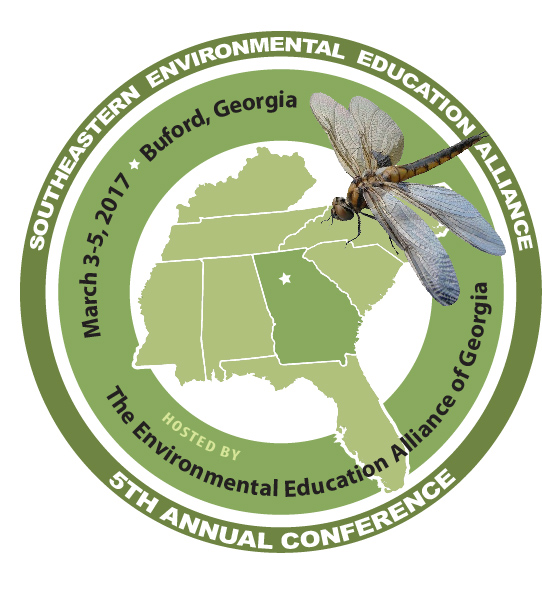 |
Southeastern Environmental Education Alliance southestee.org March 16 to 18, 2018 St. Petersburg, Florida |
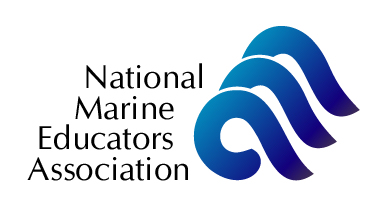 |
National Marine Educators Association’s Annual Conference www.marine-ed.org July 13 to 20, 2018 Long Beach, California |
 |
Environmental Educators of NC Annual Conference www.eenc.org Sept. 27 to 29 Atlantic Beach, North Carolina |
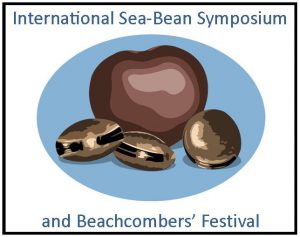 |
International Sea-Bean Symposium www.seabean.com Oct. 20 to 21, 2017 Cocoa Beach, Florida |
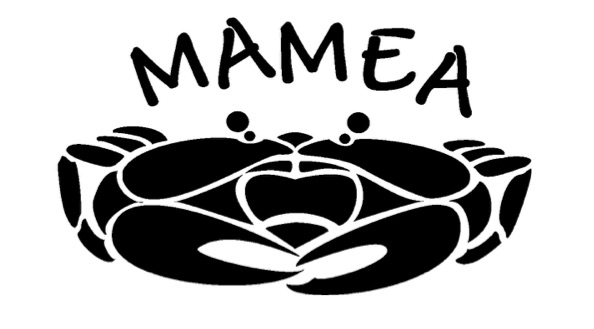 |
Mid-Atlantic Marine Education Association Annual Conference www.mamea.org/conf.html Nov. 9 to 11 Portsmouth, Virginia |
If you ever have information to share with other marine educators, please don’t hesitate to send it my way for inclusion in a future issue of the Scotch Bonnet. Let me know what you’re hearing from the sea!
Please share this website or newsletter with others — and share my email address with anyone who wants to receive a message notifying that a new issue of Scotch Bonnet is available online. Thanks for all you do for students and for other educators!
Best Fishes!

Terri Kirby Hathaway
Marine Education Specialist
North Carolina Sea Grant
Email: terrikh@csi.northcarolina.edu
Phone: 252-475-5486
Fax: 252-475-3545
Address: North Carolina Sea Grant, P.O. Box 699, Manteo, N.C. 27954